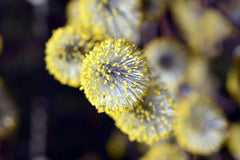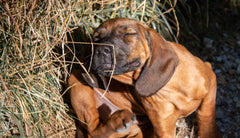
As cats age, much like humans, their dietary needs become different. What once worked well for them when they were in their adult stages of life begin to have issues once they hit their senior years. For cats, "senior" refers to ages seven and up.
Once your cat hits this age, you should consider modifying their diet. Once your pet hits this age, the diet needs to focus more on heart health, joint longevity, as well as making sure their teeth stay healthy.
The best method to achieve this is to buy food that has a different composition than what you were buying when your cat was seven years or below. Here are three diet differences to consider.
Senior Cats Will Need Less Food

As your cat ages, they will invariably start to slow down. When this happens, they will need to eat less to maintain a healthy body weight. While it's reasonable to eat less food as cats age, it's not healthy to have no appetite. As your pet ages, if you find that they don't eat as much dry, wet, or soft food for older cats, that's perfectly ok.
However, if you find that they come over to the bowl and refuse the food or they don't even bother coming over when it's feeding time, then there may be a problem. In either of those cases, a vet appointment might be worthwhile.
Their Food Needs High-Quality Protein And Less Fat

Since senior cats' digestive systems tend to be a little more finicky than when they were younger, and they are living more sedentary lifestyles, the food they receive should change as well. There are foods sold in most pet stores that are specifically for senior cats like soft cat kibble and grain-free, high fiber cat food.
These foods contain high-quality proteins and tend to have less fat. Your cat's system will be able to digest and make use of these proteins. Additionally, the lower amounts of fat will keep your cat a healthy weight as their activity slows down. You can also look into soft and chewable dry cat food.
Senior Cat Food Has More Vitamins

Most senior cat foods have extra vitamins (like vitamin E and omega for cats, for example) to help your furry friend avoid getting sick. As pets age, colds and other viruses can have a more significant impact than when they were younger. A simple bug might turn into a respiratory illness, for example.
By feeding your cat more healthy ingredients that are rich in nutrition, you'll ensure their immune systems are up to the task of fending off any nasty viruses they encounter!
Be Aware Of Your Cat's Diet As They Age

The key is to be aware of your pet's dietary needs as they age. You will need to feed your pet a little less and provide more nutrient-rich food. Your vet will be able to walk you through what foods might be best for your cat.
Sometimes, cats have unique issues (like kidney problems, for example) that require an even more specialized diet. However, for most cats, switching to a senior food will suffice for ensuring that they remain happy, healthy, and physically active!




